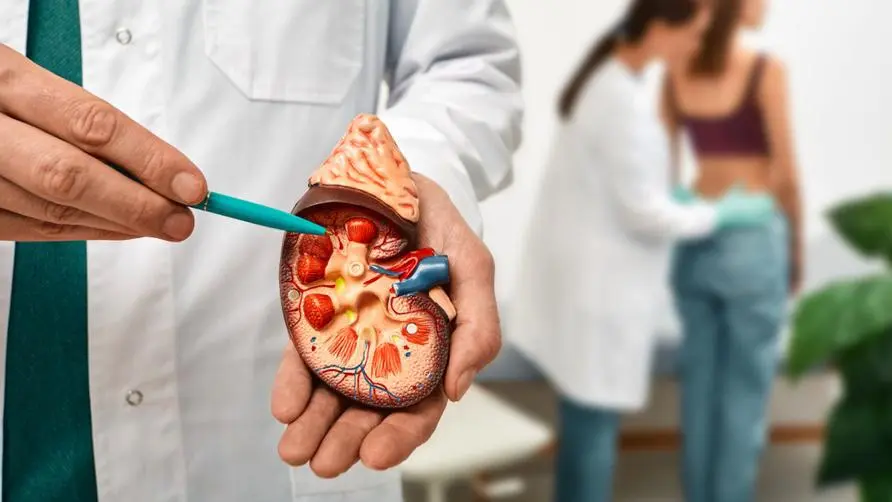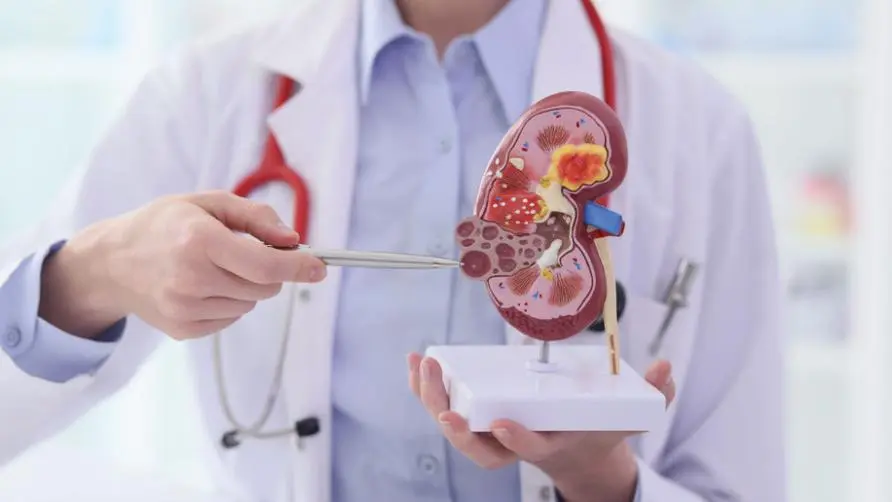Drinking more water and not eating salt can lower blood pressure? She had low blood sodium and was sent to the hospital for emergency treatment! Doctors reveal mild, moderate and severe symptoms of hyponatremia

Drinking more water and not eating salt can lower blood pressure? She was rushed to the hospital due to “low blood sodium” and was in danger of shock.
In modern society, health awareness is on the rise. However, excessive pursuit of health and drastic diet may also cause physical harm. A 60-year-old woman pursued health care after retirement. She saw online information claiming that “salt affects blood pressure.” So she suddenly had a whim. She did not add salt to three meals and drank a lot of water, hoping to achieve the effect of lowering blood pressure. Unexpectedly, her body began to He became increasingly weak and his state of consciousness even deteriorated. After being rushed to the hospital, he was found to have “hyponatremia” with a blood sodium value of only 120 mEq/L (normal value is about 135-145). He recovered only after receiving appropriate treatment.
Dr. Zeng Yuqi, director of the emergency room of Xintai Hospital, said that the woman lives a regular life and has exercise habits, and does not have any problems with high blood pressure. I just wanted to actively maintain health after retirement. After searching for information on the Internet and piecing together partial information, I came to the conclusion that “not taking in salt and drinking more water” is beneficial to blood pressure, which accidentally caused severe hyponatremia. Similar clinical cases are not uncommon. Although a low-salt diet is relatively healthy, excessive lack of sodium intake is harmful to health. The public is reminded that if they need to adjust their diet, they should consult a doctor or nutritionist.
Nutritionist Li Meiyue reminded that the World Health Organization recommends that adults should not consume more than 6 grams (1 small teaspoon) of sodium per day, but they should not eliminate it completely. However, those who eat out need to pay attention to excessive sodium intake, especially processed foods such as canned foods, snacks, seasonings, and pickled products. In order to neutralize the salty taste, many food manufacturers will add a large amount of sugar to prevent consumers from feeling too salty. In fact, As long as you are not careful, your daily sodium intake will exceed the standard.
Will not eating enough sodium make me confused? What are the symptoms of hyponatremia?
Chen Youcheng, director of the Nephrology Department of Suntai General Hospital, pointed out that modern people are indeed prone to excessive sodium intake. When sodium intake is excessive, it will destroy the water balance in the body, causing excess water to increase the burden on the heart, kidneys and blood vessels, and increase cardiovascular disease and stroke. Probability of occurrence. However, insufficient sodium intake can also make people feel nauseous and weak. In severe cases, headache, drowsiness, and confusion may occur, and you need to be more vigilant.
Dr. Chen Youcheng said that depending on the blood sodium value, hyponatremia may occur from mild asymptomatic to severe coma and shock. Mild hyponatremia without obvious discomfort. Moderate hyponatremia may cause nausea, vomiting, headache, fatigue, drowsiness, and general weakness. Severe hyponatremia can cause convulsions, coma, and shock. There is no standard answer to the lower level of blood sodium that causes symptoms. Generally speaking, the lower the blood sodium level, the more severe the symptoms.
Why is the blood sodium concentration abnormal? What diseases are associated with hyponatremia?
Hyponatremia is a common clinical electrolyte abnormality. However, why does the body experience hyponatremia? Dr. Chen Youcheng explained that blood is like “salt water”. The ratio of water to salt determines the blood sodium concentration. When the body has “more water and less salt” or “less water and less salt” or “more salt and more water”, it will It may lead to a decrease in blood sodium concentration and cause hyponatremia. It can be divided into three categories: too little body fluid, moderate body fluid, and too much body fluid.
Possible causes of hyponatremia (less water but less salt) due to “low body fluid” include the use of diuretics, salt-losing nephropathy (renal tubular incompetence), and cerebral salt-wasting syndrome (central nervous system disease) , mineral cortisol (insufficient secretion of aldosterone) and other reasons. When other diseases cause vomiting, diarrhea, sweating, burns, and acute pancreatitis, they may also cause sodium ion loss, thereby causing hyponatremia.
The possible main cause of hyponatremia with “moderate body fluids” (slightly more water and moderate salt) is “Syndrome of Inappropriate Secretion of Antidiuretic Hormone” (SIADH), which is a disease that may be caused by malignant tumors, lung diseases, central nervous system Nervous system disease or drug-induced conditions. In addition, insufficient glucocorticoids and hypothyroidism may lead to increased secretion of antidiuretic hormone, causing hyponatremia. Other possible causes include primary hyperthermia, malnutrition, alcoholism, and TURP (transurethral resection of the prostate) surgery.
The cause of hyponatremia (more salt but more water) due to “excessive body fluid” may be caused by heart failure, liver cirrhosis, nephrotic syndrome, and renal failure.
Are there any significant differences in neurological symptoms? Treatment principles for hyponatremia
Severe hyponatremia may cause a drop in blood osmotic pressure, affecting the central nervous system, causing dizziness, unconsciousness, and even coma. Dr. Chen Youcheng pointed out that when hyponatremia occurs, it is necessary to immediately assess whether there are neurological symptoms and take necessary immediate treatment, including administering hypertonic saline and loop diuretics, and closely tracking the sodium ion concentration in the blood. However, when treating hyponatremia, supplementation should not be done too quickly, and the patient’s hypokalemia problem must also be addressed.
If there are no neurological symptoms, the treatment strategy may be determined based on the amount of body fluids. In addition to correcting hyponatremia, patients with such hypokalemia must also actively treat other medical problems such as hyperglycemia to reduce the recurrence of hyponatremia. risks of.
Further reading:





